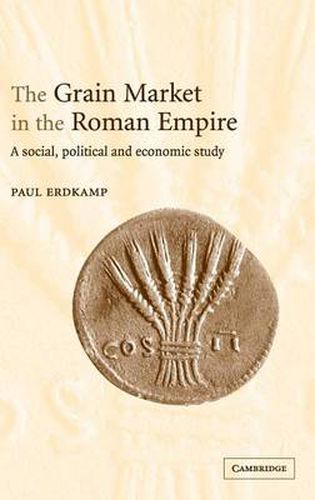Readings Newsletter
Become a Readings Member to make your shopping experience even easier.
Sign in or sign up for free!
You’re not far away from qualifying for FREE standard shipping within Australia
You’ve qualified for FREE standard shipping within Australia
The cart is loading…






This book explores the economic, social and political forces that shaped the grain market in the Roman Empire. Examining studies on food supply and the grain market in pre-industrial Europe, it addresses questions of productivity, division of labour, market relations and market integration. The social and political aspects of the Roman grain market are also considered. Dr Erdkamp illustrates how entitlement to food in Roman society was dependent on relations with the emperor, his representatives and the landowning aristocracy, and local rulers controlling the towns and hinterlands. He assesses the response of the Roman authorities to weaknesses in the grain market and looks at the implications of the failure of local harvests. By examining the subject from a contemporary perspective, this book will appeal not only to historians of ancient economies, but to all concerned with the economy of grain markets, a subject which still resonates today.
$9.00 standard shipping within Australia
FREE standard shipping within Australia for orders over $100.00
Express & International shipping calculated at checkout
This book explores the economic, social and political forces that shaped the grain market in the Roman Empire. Examining studies on food supply and the grain market in pre-industrial Europe, it addresses questions of productivity, division of labour, market relations and market integration. The social and political aspects of the Roman grain market are also considered. Dr Erdkamp illustrates how entitlement to food in Roman society was dependent on relations with the emperor, his representatives and the landowning aristocracy, and local rulers controlling the towns and hinterlands. He assesses the response of the Roman authorities to weaknesses in the grain market and looks at the implications of the failure of local harvests. By examining the subject from a contemporary perspective, this book will appeal not only to historians of ancient economies, but to all concerned with the economy of grain markets, a subject which still resonates today.